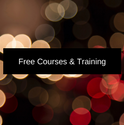Some say life is all about learning ‒ learning new skills.
And if you learn the right skills, you can be anything – you can be wealthy, ride a bike, play a musical instrument, have great relationships, hit, kick or catch a ball, or juggle five balls.
But mastering a new skill is a skill in itself.
There are many ways to learn a new skill, but setting goals, mentoring, coaching, and having reasonable expectations are all important as well.
Here are 7 easy strategies to master a new skill quickly and effectively:
- Choose something suitable. You can’t learn everything, so choose something meaningful. It can be a skill that will help you improve or one that you find fascinating. If it doesn’t fit into these categories, you probably won’t stay motivated long enough to master it. To prove to myself that I could do anything, I took flying lessons. I still pilot my own light aircraft to this day.
- Set proper goals for the long and the short term. Your short-term goal is learning a new skill; your long-term goal is mastering your chosen skill. How good do you really want to be? The short-term goal shouldn’t take more than 12 weeks to learn. I took one flying lesson a week and went solo after 12 hours. At the end of this short time learning the new skill, you change gear and set a goal for how far you want to be after the next few months. Mine was to get my pilot’s license within 40 hours. This will keep you focused on making continuous progress. (By the way, it took me 45, but I persevered.)
- Be reasonable with your progress. Your ultimate progress is basically unlimited. But there is a limit to how much you can accomplish in say 12 weeks. Just remember – you are unique and the rate of your progress could be slower or faster than that of someone else.
- Break the skill into smaller components. For example, playing the piano isn’t all about hitting the right keys in the right order. Playing the piano is like using the alphabet – it has several skills interwoven into a larger skill. To be a good pianist, you must be able to do several things well:
- You have to learn to read notes
- You have to compensate for the fact that some fingers are much stronger than others and some people have bigger hands with a wider stretch than others
- You have to know and understand music theory
- You must know about scales, arpeggios, dynamics and many more.
- Go for lessons. You can learn to play the piano by yourself, but you won’t find a high-level pianist that never had expert instruction. At the very least, find materials created by an expert. This may include books, videos, webinars, websites or even periodic meetings with a coach to keep you on the right track. You can also get hands-on mentoring.
- Focus on what is most important. Believe it or not, but it is a fact that about 20% of your efforts will account for around 80% of your results. Determine which skills will give you the greatest results. Most people focus on activities that are the easiest or the most interesting. Don’t do that – you will progress much faster if you do the most important things first.
- This is often called “deliberate practice”. Tonking away on the piano while watching the end of Rocky V is not quite focusing all your attention on learning how to play a C with both hands.
- Get up and get started. Don’t fall into the trap of gathering more and more information before you get going. People who master a skill are people who spend their time wisely. Watching someone playing the piano is not a substitute for doing it yourself. Get into the practical part quickly.
You will be surprised to see how quickly you learn if you focus on an appropriate skill, the most effective tasks, and practice all the time.
Learning a new skill will change your life.
Choose something that will add value to your life and you will reap the fruits from it forever.














Leave A Response